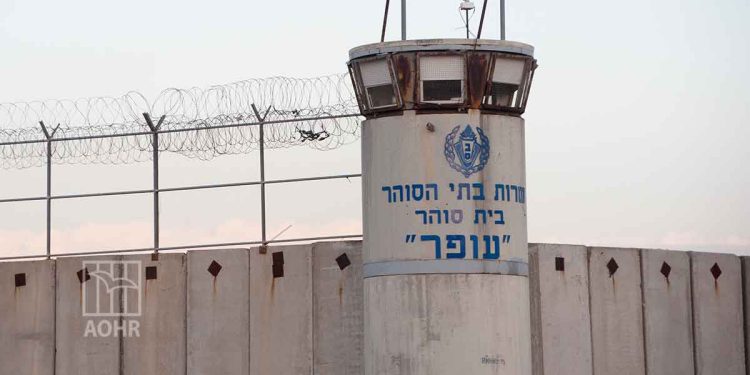The Israeli occupation authorities continue using the policy of administrative detention (without charge or trial) against hundreds of Palestinians in their prisons.
The number of administrative detainees in the Israeli occupation prisons is about 1,000, including the female detainee, Raghad Al-Fani, five children, two deputies from the Palestinian Legislative Council, two prisoners with cancer, and a number of elderly people over 60 years of age.
Administrative detention is detention without charge or trial, based on a secret file that neither the detainee nor his lawyer have access to. It is based on military orders of the occupation, which can be renewed unlimited times. It is issued for a maximum period of six months, subject to renewal.
The administrative detainees are taking part in the “disobedience” for the 17th day in a row, in protest against the abusive measures against them by the Minister of Internal Security of the Israeli occupation, Itamar Ben Gvir. Those measures are:
– Controlling the amount of water used by prisoners, and reducing the duration of bathing at a specific hour. Bathrooms designated for showering in the new sections of (Nafha) prison have been locked.
– Providing the prisoners with bad or frozen bread.
– Increased raids and searches against male and female prisoners, as well as using sound bombs and sniffer dogs during the searches.
– Approval of a first reading of a draft law depriving prisoners of medical treatment and some surgical operations.
Another draft law was approved by the ministerial-legislative committee in the occupation government on the execution of prisoners who carried out resistance operations against the occupation.
-Doubling the solitary confinement periods and withdrawing the televisions from the sections of the detainees in Mibar section.
– Increased transfers of the movement’s leaders, particularly those sentenced to life, in addition to threatening to close public facilities on Friday and Saturday in some central prisons.
The number of Palestinian prisoners in the occupation prisons has reached 4,780, including 29 female prisoners and 160 children.






























